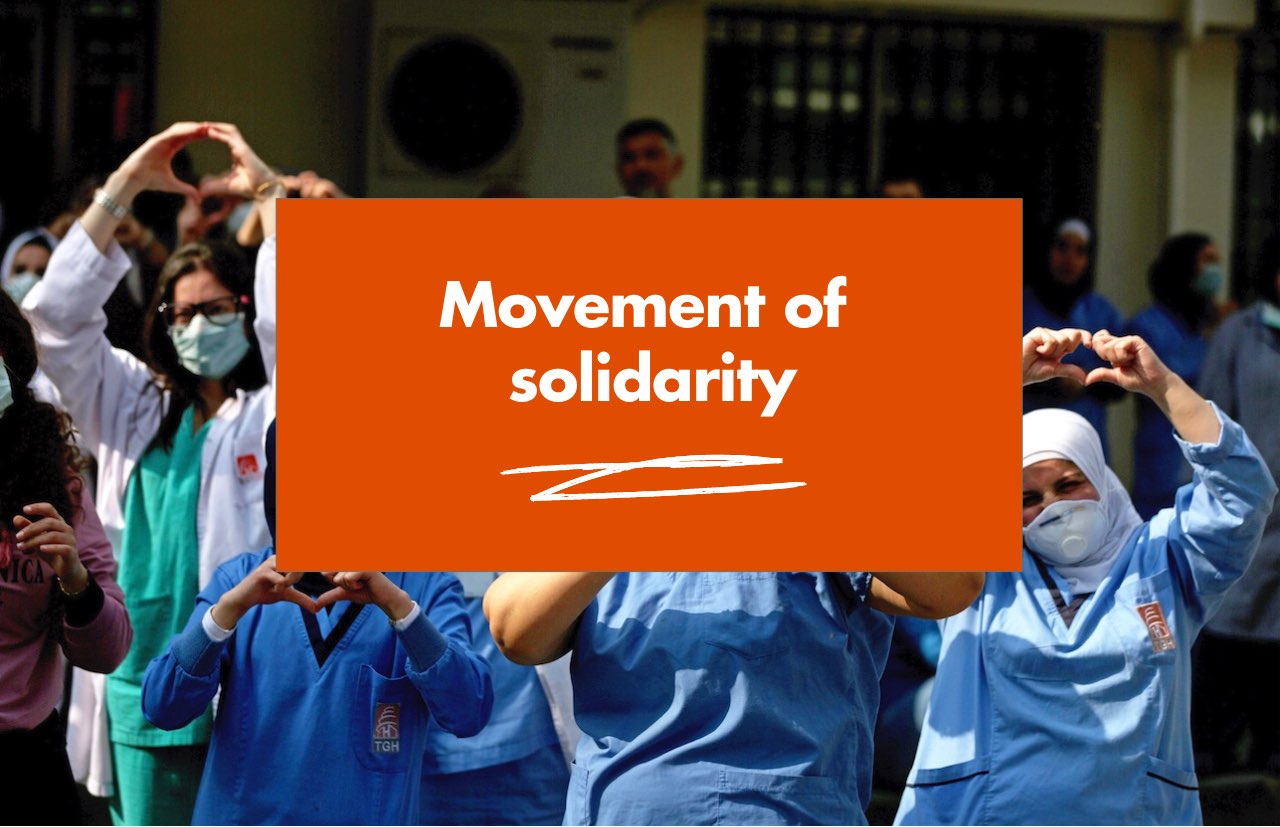
Communities all around the world are showing solidarity and compassion to help each other through the COVID-19 pandemic.
17 June 2020
In Argentina, volunteers are sharing a meal with those in need. It all started with a couple wondering how vulnerable or homeless people are able to face the pandemic. Today, Convidarte (which translates as “to share with you”) is a network of more than 4,000 volunteers who distribute 6,800 home-cooked meals to 30 shelters every day. “This is love,” one of the volunteers excitedly explains. “This is nothing but love.”
More than 100 artists from across the African continent, including Senegalese superstar Youssou N'Dour and Grammy-winner Angelique Kidjo, took part in a virtual concert to raise awareness of the coronavirus pandemic. "After COVID-19, Africa will be great, Africa will be strong. Together we are unbeatable," Malian kora star and hip-hop artist Sidiki Diabate said at the launch of the virtual concert. The show celebrating the Africa Day was broadcast online and carried by 200 African channels.
In the United States, indigenous activists, artists, elders, and musicians are building solidarity in the midst of the coronavirus pandemic. They embody the idea of solidarity, a powerful force in indigenous communities. “It means being there for each other, taking care of one another, treating each other as kin,” says June, who is Diné (Navajo) and Tsétsêhéstâhese (Cheyenne).
In Turkey, Afghan refugees are contributing to the fight against the coronavirus, producing soap and 1,000 face masks a day to aid hospitals and local community. "There was a shortage of masks. I wanted to use the refugees' talent and locally available fabric to show that we, refugees, can also contribute to the response of the pandemic and not just rely on assistance," Ali Hekmat, an Afghan refugee, said.
A Lagos and San Francisco-based tech company is helping small and medium enterprises during the pandemic crisis by creating a free platform for any business to sell online in 15 African countries. Founder Olugbenga Agboola said the company noticed that many SMEs did not have an online presence which was a critical way of making sales in the wake of the pandemic. More than 1,000 businesses from across Africa have so far signed up to sell their products using the store, according to Agboola.
In Thailand, Village Health Volunteers, a long-overlooked network of more than 1 million community workers help the government collect daily health information and watch for flare-ups in infections. The volunteers have been praised by the World Health Organization (WHO) as "unsung heroes" in Thailand’s efforts to fight the novel coronavirus.
In Morocco, a painter honours frontline COVID-19 workers with giant mural. The mural included portraits representing those working day and night to contain the crisis and serve the public — including nurses, policemen, cleaners, teachers and journalists. They are all seen standing together in the mural as heroes, illustrating Moroccans’ appreciation for their work and sacrifice.
Disclaimer: The views, information and opinions expressed in this article are those of the persons featured in the story and do not necessarily reflect the official policy or position of the Office of the UN High Commissioner for Human Rights.
Have you supported those around you affected by the pandemic? Share your story with us. We would love to hear from you!
Share your story- I will respect your rights regardless of who you are. I will uphold your rights even when I disagree with you
- When anyone’s human rights are denied, everyone's rights are undermined, so I will stand up
- I will raise my voice. I will take action. I will use my rights to stand up for your rights.
people have stood up for human rights
We can all be Human Rights Champions
Tweet, Instagram or YouTube your action using the hashtag #Standup4humanrights.

#Standup4humanrights

